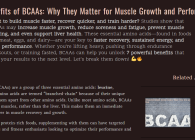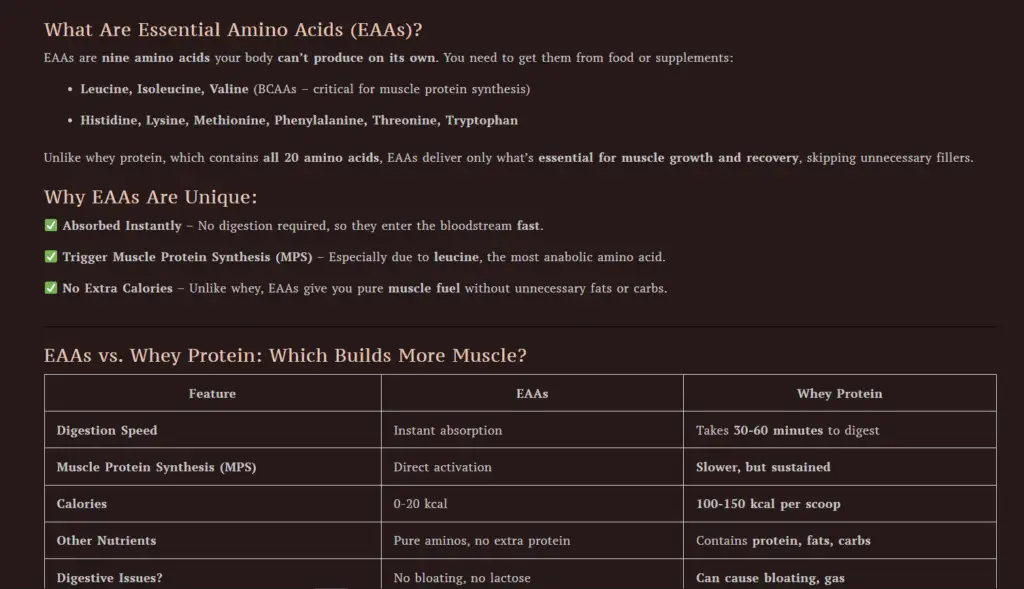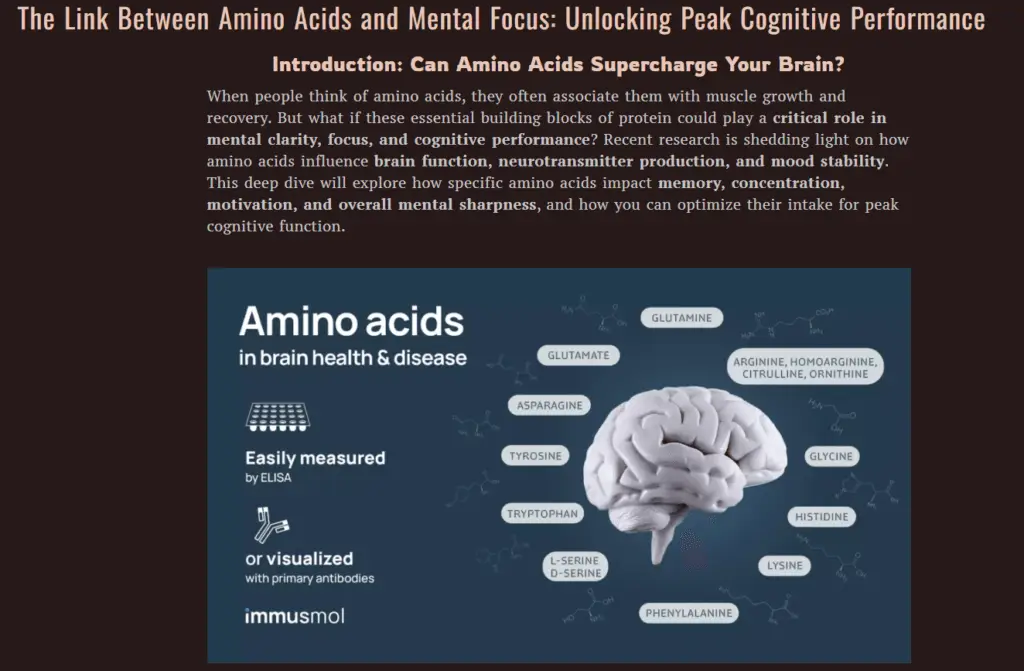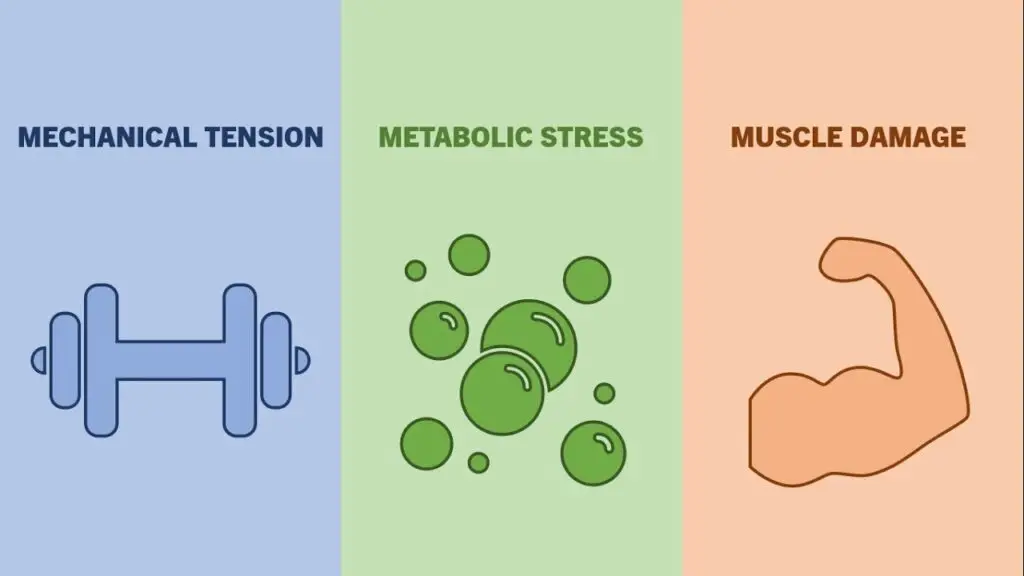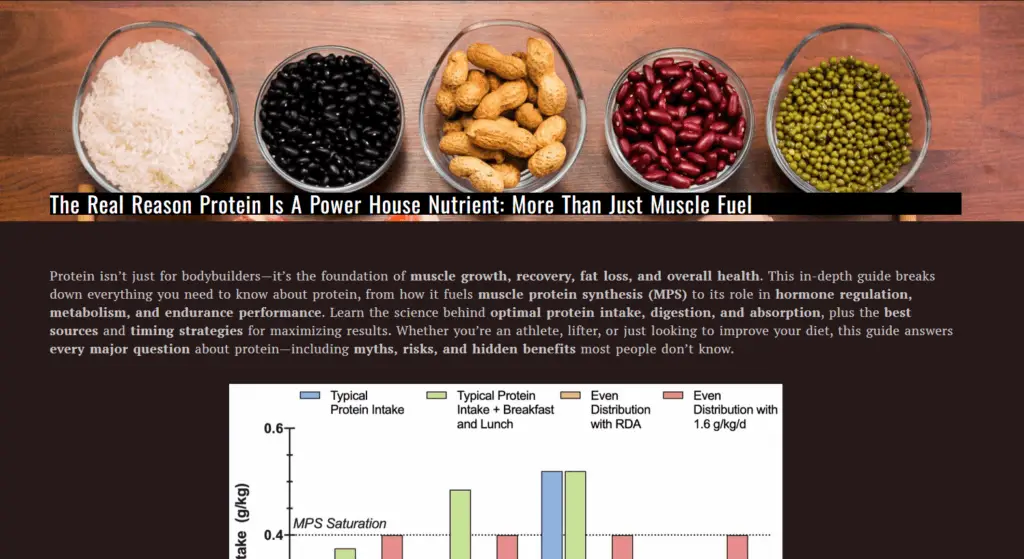10 Best Foods with Amino Acids for Muscle Growth & Recovery
Amino acids are the building blocks of protein, essential for muscle growth, recovery, and overall health. Whether you’re looking to gain muscle, improve athletic performance, or optimize recovery, knowing the best food sources of amino acids is crucial.
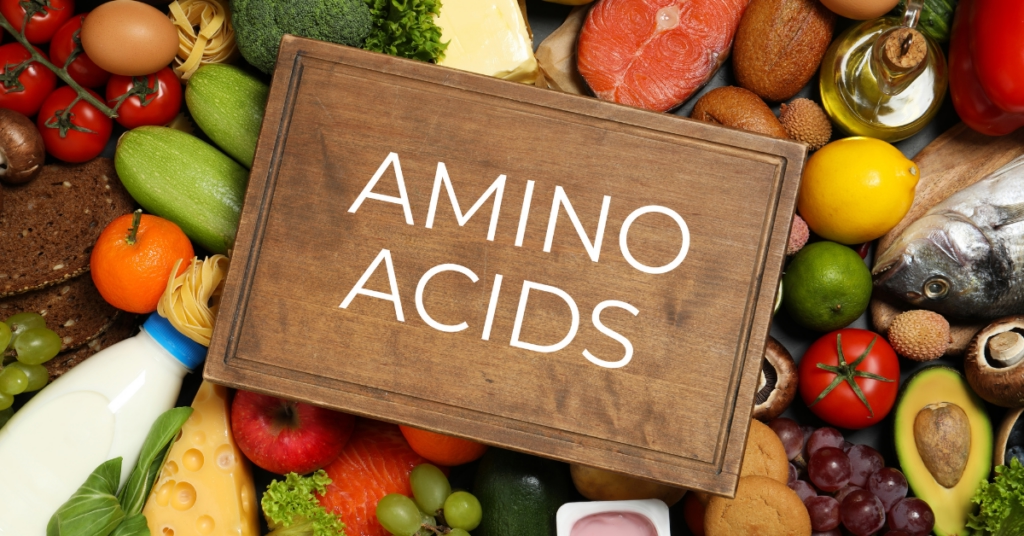
What Are Amino Acids
Amino acids are divided into three categories:
Essential amino acids (EAAs): Must be obtained from food.
Non-essential amino acids: Produced by the body.
Conditional amino acids: Required in times of stress or illness
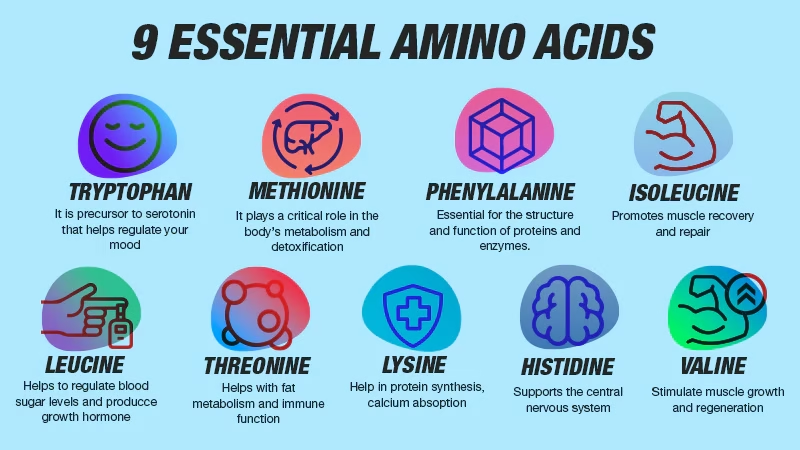
Complete vs. Incomplete Protein Sources
Complete protein sources contain all nine essential amino acids, while incomplete proteins lack one or more.
| Protein Type | Examples | Contains All Essential Amino Acids? |
|---|---|---|
| Complete Proteins | Chicken, eggs, fish, dairy, soy | ✅ Yes |
| Incomplete Proteins | Nuts, seeds, grains, beans | ❌ No |
Best Foods with Amino Acids for Muscle Growth
1. High-Protein Animal Sources (Complete Proteins)
Animal-based foods with amino acids:
| Food | Key Amino Acids | Benefits |
| Chicken Breast | Leucine, Isoleucine, Valine | Supports muscle repair & growth |
| Eggs | All essential amino acids | High bioavailability for muscle synthesis |
| Salmon | Methionine, Lysine, Omega-3s | Reduces muscle inflammation |
| Greek Yogurt | Leucine, Glutamine | Supports gut health & muscle recovery |
| Lean Beef | Histidine, Leucine, Iron | Boosts strength & endurance |
2. Plant-Based Sources of Amino Acids
For those following a vegetarian or vegan diet, these are the plant-based options with amino acids:
| Food | Key Amino Acids | Complete Protein? |
| Quinoa | All essential amino acids |  Yes Yes |
| Lentils | Lysine, Arginine |  No No |
| Tofu | Leucine, Valine, Isoleucine |  Yes Yes |
| Chia Seeds | Tryptophan, Lysine |  No No |
| Almonds | Glutamine, Arginine |  No No |
Related Articles
Every Essential & Non-Essential Amino Acid and Their Best Food Sources
These must be obtained through diet:
| Amino Acid | Best Food Sources | Function |
| Histidine | Meat, fish, dairy, soy | Supports tissue repair & immune function |
| Isoleucine | Eggs, chicken, soy | Muscle metabolism & endurance |
| Leucine | Beef, dairy, eggs | Triggers muscle protein synthesis |
| Lysine | Chicken, lentils, quinoa | Aids calcium absorption & tissue repair |
| Methionine | Fish, eggs, nuts | Supports metabolism & detoxification |
| Phenylalanine | Dairy, beef, tofu | Precursor to neurotransmitters |
| Threonine | Pork, cheese, leafy greens | Aids digestion & muscle function |
| Tryptophan | Turkey, seeds, dairy | Helps with sleep & serotonin production |
| Valine | Peanuts, cheese, mushrooms | Supports muscle growth & repair |
Non-Essential & Conditional Amino Acids
These are produced by the body but can be beneficial through diet:
| Amino Acid | Best Food Sources | Function |
| Alanine | Meat, fish, eggs | Energy production & muscle endurance |
| Arginine | Turkey, nuts, seeds | Enhances blood flow & recovery |
| Aspartic Acid | Oysters, peanuts, soy | Supports ATP energy production |
| Cysteine | Poultry, eggs, garlic | Helps with antioxidant production |
| Glutamic Acid | Seaweed, soy, meats | Supports brain & gut health |
| Glutamine | Beef, eggs, cabbage | Aids muscle recovery & immune function |
| Glycine | Bone broth, fish, spinach | Helps with collagen production |
| Proline | Cheese, beef, egg whites | Supports joint & skin health |
| Serine | Eggs, soy, dairy | Aids metabolism & brain function |
| Tyrosine | Chicken, nuts, dairy | Supports brain neurotransmitters |
Key Amino Acid Categories & Their Best Food Sources
Lysine-Rich Foods (Supports muscle repair & immune function)
Chicken, turkey
Lentils, black beans
Quinoa, pumpkin seeds
Tryptophan-Rich Foods (Enhances sleep & muscle recovery)
Turkey, chicken
Nuts & seeds
Oats, cheese
Leucine-Rich Foods (Triggers muscle protein synthesis)
Eggs, fish, beef
Soy, lentils, peanuts
L-Theanine Sources (Supports stress reduction & muscle relaxation)
Green tea
Black tea
Some mushrooms
FAQ: Common Questions About Amino Acids & Muscle Growth
1. Can you get all essential amino acids from a plant-based diet?
Yes! By combining different plant-based proteins (e.g., beans + rice or quinoa + lentils), you can get all essential amino acids.
2. What is the best food for muscle recovery?
Greek yogurt, eggs, and salmon provide amino acids plus recovery-boosting nutrients like Omega-3s and probiotics.
3. Do I need amino acid supplements?
If you eat a balanced diet, you likely get enough. However, BCAAs (branched-chain amino acids) can help if you’re training intensely.
4. What happens if you don’t get enough essential amino acids?
A deficiency in essential amino acids can lead to muscle loss, weakened immune function, fatigue, and slower recovery from workouts. It’s important to eat a variety of protein sources to avoid deficiencies.
5. Which foods have the highest amount of all essential amino acids?
Animal-based sources like eggs, chicken, beef, and salmon contain all essential amino acids in high amounts. Among plant-based options, quinoa, soy, and buckwheat are the best complete protein sources.
6. How do amino acids help with muscle recovery?
Amino acids, especially BCAAs (leucine, isoleucine, and valine), promote muscle repair by reducing protein breakdown and stimulating protein synthesis. Foods like Greek yogurt, salmon, and eggs help speed up recovery.
Final Thoughts
Amino acids are essential for muscle growth, repair, and overall health. By incorporating a mix of complete and incomplete protein sources into your diet, you can optimize your muscle-building potential and recovery.
Trending Articles:
Do you have any questions?

